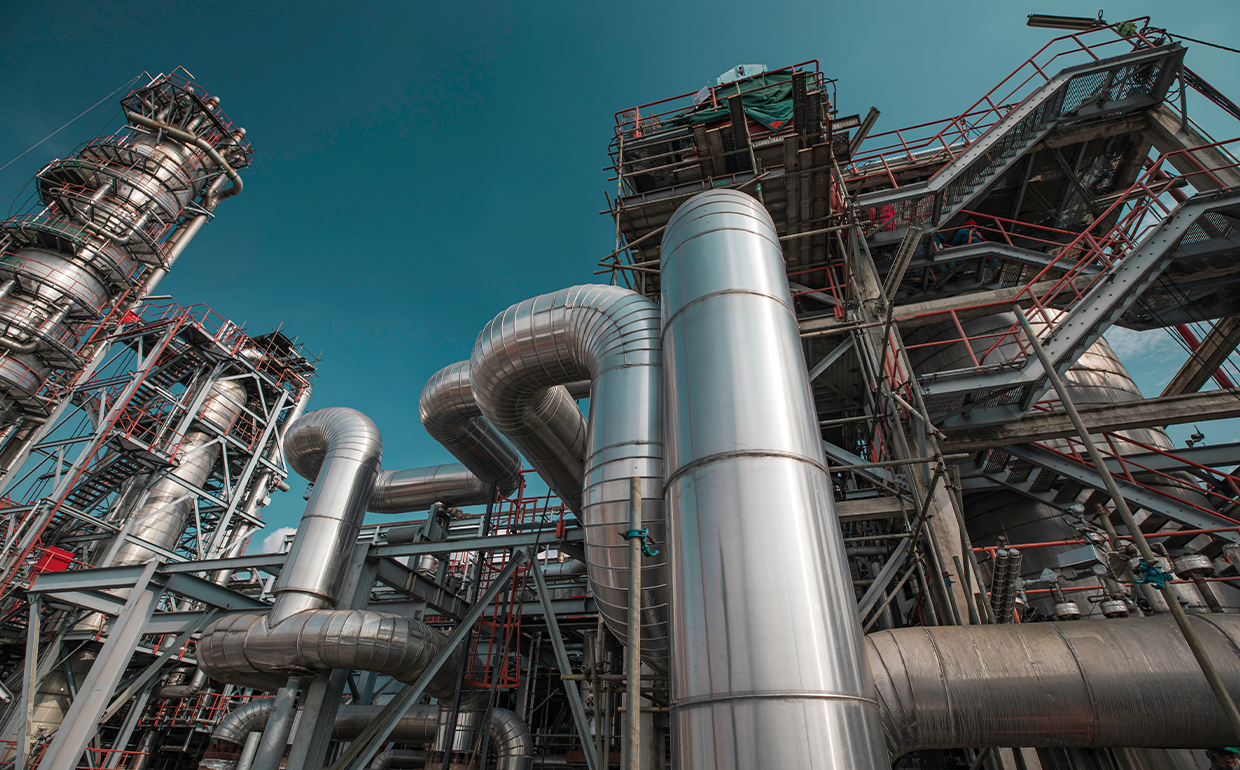The petrochemical industry is one of the most complex and high-risk sectors, demanding precise operations and asset management across multiple domains. Companies handle an intricate web of assets, processes, and regulatory requirements from upstream exploration and drilling to midstream distribution and downstream refining. Despite technological advancements, many petrochemical companies continue to rely on outdated operational management methods, particularly an over-dependence on ERP systems. While ERP solutions like SAP, Oracle, and Microsoft excel at financial and supply chain management, they fall short when it comes to real-time, field-based operational efficiency. This is where digital inspection management software, like Inspectivity’s, can change everything.
Over-reliance on ERP creates serious inefficiencies, from slow paper-based workflows to poor data quality and compliance risks. Even more critically, it prevents companies from leveraging artificial intelligence (AI) — game-changing technologies that could redefine asset reliability and maintenance strategies. The question that every CEO should be asking is: Can we afford to let poor data quality limit our future?
The answer lies in a smarter, more integrated approach. By complementing ERP systems with digital inspection management software like Inspectivity, companies can overcome these challenges and unlock the full potential of their operations.
The Challenges of Petrochemical Operations Management
Managing assets in the petrochemical industry is no small task. Equipment such as pipelines, storage tanks, valves, and pressure vessels require continuous monitoring to prevent corrosion, leaks, and systemic failures. Electrical and instrumentation assets must undergo routine inspections to comply with hazardous area regulations, while lifting equipment, structural assets, and small-bore tubing systems demand strict oversight to ensure safety and reliability.
Yet, many companies still rely on outdated, paper-based workflows to manage these processes. This approach is not only slow and inefficient but also leads to fragmented, inconsistent data that undermines effective decision-making. Not to mention, millions of dollars flushed down the pipe, so to speak. A lack of real-time visibility means that offshore teams operate in silos, with onshore teams unable to see or act on field conditions until it’s too late. The disconnect results in unplanned failures, costly downtime, and compliance risks that could have been avoided.
Regulatory obligations further complicate matters. Authorities such as Australia’s NOPSEMA and DMIRS require meticulous documentation to demonstrate compliance. However, when critical data is scattered across spreadsheets, PDFs, and handwritten notes, preparing for an audit becomes a nightmare. The stress of proving compliance often falls on frontline personnel–engineers, inspectors, and supervisors–who have little say in the choice of operational software. This creates a significant gap between regulatory demands and the tools available to meet them. See how Wesfarmers changed their approach entirely using Inspectivity.
Perhaps the most concerning consequence of poor data management is its impact on safety. The petrochemical industry is inherently high-risk, and a lack of real-time, structured data increases the likelihood of hazardous incidents. Without accurate, up-to-date inspection records, companies expose themselves to serious liabilities, including legal action under industrial manslaughter laws.
The Need for Standardisation & Loss of Tribal Knowledge
A major challenge in inspections is the lack of standardisation. With inspectors following different approaches and no universal format, consistency and visibility suffer. This inconsistency impacts quality and weakens trust among key stakeholders, from management to field inspectors and regulators. Without clear, structured processes, maintaining compliance and high inspection standards becomes increasingly difficult.
Effective maintenance and inspections rely not just on formal training but also on hands-on experience, often passed down informally as “tribal knowledge.” When experienced team members retire or leave, this expertise is lost–especially in paper-based environments. Without a structured way to capture and retain these insights, organisations risk reduced efficiency and growing operational challenges.

The Pitfalls of Over-Reliance on ERP Systems
ERP systems were designed for finance, procurement, and supply chain management–not for the dynamic, field-based needs of petrochemical operations. While they provide valuable enterprise-wide visibility, they lack the flexibility, usability, and real-time collaboration features required for effective asset management.
For instance, ERP mobile solutions are notoriously expensive and rigid. To achieve full asset inspection capabilities within SAP, a company would need to implement multiple modules, such as SAP Enterprise Asset Management, Quality Management, and SAP Service and Asset Manager. Each of these requires extensive customisation, leading to high professional service costs and long implementation timelines. Even after investing millions, companies often end up with a system that is difficult to use and does not fully support all real-time field operations use cases.
Another major shortcoming of ERP is its inability to manage visual records. Inspection data often lacks accompanying images or videos, making it difficult to verify asset conditions. This absence of visual documentation fosters a culture of distrust–how can management be certain that inspections were conducted thoroughly rather than rubber-stamped at a desk? Moreover, without structured, high-quality data, AI-powered predictive maintenance becomes impossible, leaving companies blind to emerging risks.
The Future of Operations: Digital Transformation and AI Readiness
The key to overcoming these challenges is digital transformation. Companies must move beyond traditional ERP dependency and adopt modern, purpose-built solutions that enable seamless data collection, real-time reporting, and AI-assisted decision-making.
Digital transformation enhances four key areas of petrochemical operations:
Profitability: Optimising yield, throughput, and energy efficiency.
Asset Reliability: Using advanced analytics to improve maintenance and reduce failures.
Value Chain Optimisation: Standardising processes across multiple sites to improve planning.
Compliance & Safety: Automating audit readiness and ensuring regulatory inspection compliance.

More importantly, structured digital data lays the foundations for AI driven outcomes. Instead of relying on historical trends or best guesses, companies can leverage real-time insights to predict equipment failures before they occur, optimise maintenance schedules, and reduce downtime. However, without high-quality, structured data, these technologies remain out of reach. This is where the power of AI integrated with Inspectivity’s digital inspection platform will change the game.
Inspectivity: The Smarter Digital Solution for Site Inspections
Unlike ERP systems, Inspectivity is purpose-built for inspection and operations management, offering a modern SaaS platform that enhances efficiency, compliance, and collaboration.
With Inspectivity, petrochemical companies gain:
- Centralised Data Management: All inspection data, documentation, and records are in one place.
- Real-Time Collaboration: Seamless coordination between onshore and offshore teams.
- Audit-Ready Compliance: Digital records that meet regulatory requirements effortlessly.
- AI & Analytics Foundations: High-quality data that powers actionable insights.
By integrating Inspectivity with ERP, companies can retain ERP’s financial strengths while unlocking a smarter, AI-ready future for operations. The result? Increased efficiency, improved safety, and the ability to stay ahead in a rapidly evolving industry.
The Time to Act is Now
The petrochemical industry is undergoing a period of unprecedented change. Companies that fail to modernise will find themselves struggling with inefficiencies, compliance risks, and lost revenue. Those who embrace digital transformation will not only improve operational performance but also future-proof their business with AI-driven insights.
It’s time to move beyond ERP limitations. Ready to modernise your inspection workflows? See why many tier-one operators have decided to make the change. Contact us to learn how Inspectivity can help. Book your free trial today.
